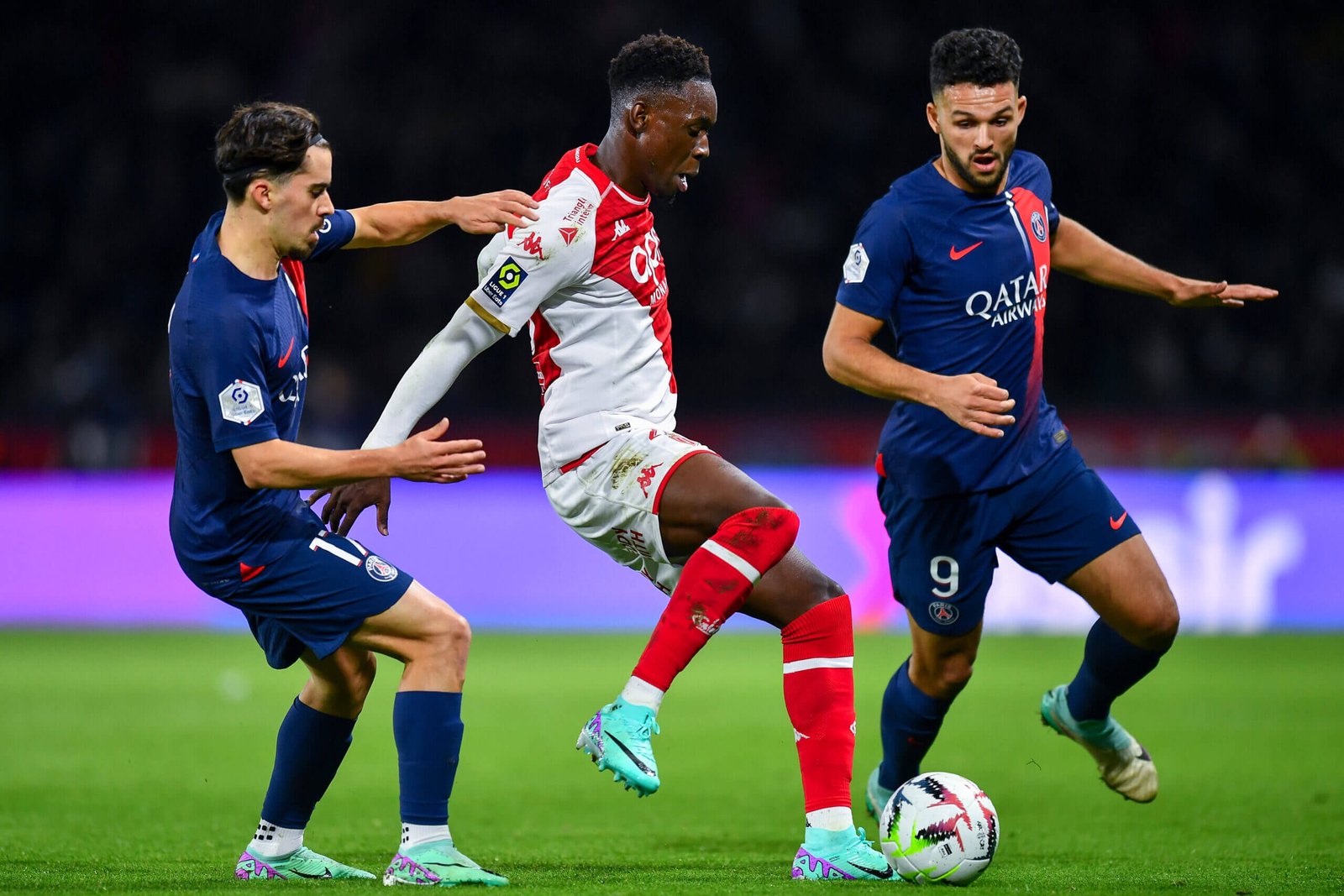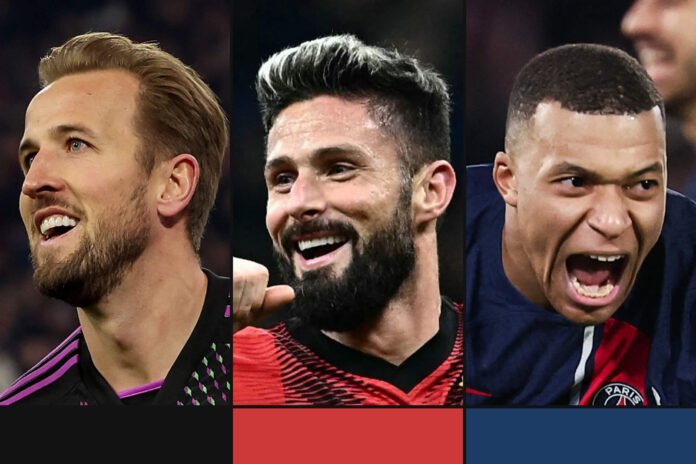The Champions League will change forever after Wednesday night.
This Tuesday and Wednesday will be the last two games for the current group stage format. From the start of next season, the Champions League group stage will be played according to the “Swiss model”, in which there will be a 36-team league.
Each club will then play eight games, four at home and four away. The top eight will automatically go into a 16-team knockout round, while the next 16 teams will go into a play-off round for the final eight slots.
This is a huge change from the current system and there has been plenty of talk about the potential for fixture congestion on the back of this alteration. There has also been optimism among some clubs about more places in the competition being available.
Here, The Athletic’s experts from across the major European leagues discuss how teams, governing bodies and other stakeholders feel about the new format.
“The new Champions League is the death of the national competitions,” according to La Liga president Javier Tebas.
The language is very similar to Tebas’ regular railings against the European Super League proposal and he sees the direction in which UEFA and the European Club Association (ECA) are going as being similarly threatening to La Liga’s long-term future.
“The current ECA (European Club Association) is like the Super League, but in slow motion,” Tebas told The Athletic last June, arguing that the new ‘Swiss-style’ format for 2024-25 was a step towards a future UEFA competition with just the continent’s “strongest 15 or 16 clubs”.
Generally, Tebas believes UEFA is not doing enough to stop the biggest clubs from moulding the competition in their own interests and has regularly complained publicly that UEFA president Alexander Ceferin is allowing state-owned clubs like Paris Saint-Germain and Manchester City to break spending rules.
Lamine Yamal of Barcelona (David Ramos/Getty Images)
Tebas would prefer a much more ‘traditional’ model for European competition, with champions of more countries being involved in something closer to the old-style European Cup. He has even said he would not be against Spain just having three clubs in the top competition each year. Of course, less attractive European competitions would help La Liga earn more from broadcasters and sponsors.
Real Madrid president Florentino Perez called the new Champions League format “absurd” at last month’s club AGM, but then he was hardly likely to praise it given his club (and Barcelona) remain locked in a battle against UEFA and Ceferin, at least until a European Court of Justice decision over the Super League is due on December 21.
Fans and pundits at most other clubs generally do not worry too much about such politicking at the very top end of the industry.
Dermot Corrigan
The Champions League reforms are one of the reasons Serie A’s latest TV rights deal went backwards. UEFA’s tender came first and because they were able to offer more games than before, they could also demand more money from Italy’s domestic broadcasters.
Much to the despair of Serie A CEO Luigi de Siervo, this meant channels like Sky had less budget for Serie A. The big clubs, who enlisted in and then appeared, rather ambiguously, to withdraw from the Super League, are still waiting for the ruling from the European Court of Justice later this month on whether UEFA is a monopoly or not.
In the meantime, the Champions League reforms represent a compromise and the competition is even more lucrative, which is important to leagues whose TV deals have regressed.
As for the coaches, I’ll leave you with Lazio’s Maurizio Sarri: “I’m seriously p***ed off with UEFA, FIFA, Serie A and the rest of this band for the mad fixture list. They’re sending players out to slaughter without anyone intervening.

Sarri is not best pleased with the new format (Marco Rosi – SS Lazio/Getty Images)
“This is football now: take money and run. And now there’s less of it (down the pyramid). There are no pitches in Serie C. All this money is being pumped in for 30 to 40 to 50 players.”
James Horncastle
During their 2-0 win over Newcastle United in November, Borussia Dortmund supporters threw fake gold bars and money onto the pitch to protest against the new Champions League format.
“Fair competition for all, not enrichment for a closed society,” read one of the banners held up on the Yellow Wall, while another claimed the redesigned modus was akin to “comprehensive insurance for the big shots and a Super League through the back door”.
Bayern Munich fans have opposed the new model on similar principled grounds, even though their club, as well as Dortmund, will be one of the biggest beneficiaries in financial terms. Dortmund CEO Hans-Joachim Watzke has estimated that German clubs will earn €18million to €20million (£15m-£17m, $19m-$21m) more per season.
Watzke also believes supporters might feel more positive about the competition “in two, three years” and has linked criticism of the reforms to that of the introduction of the Conference League, which has since become very popular. “Ten thousand of those Eintracht Frankfurt fans who rejected the idea (of a Conference League) are now happy to go to the away games,” he said.

Salih Ozcan of Borussia Dortmund (Christof Koepsel/Getty Images)
Smaller clubs, however, continue to share the ultras’ concerns. Union Berlin chairman Dirk Zingler said that “the lesser of two evils (compared to Super League) is still an evil” and that it would “subvert sporting competition” by increasing the gap between the wealthy elite and everybody else.
Unlike the visceral anger elicited by the Super League proposals, however, the reaction by the wider public has been rather muted. There isn’t much debate or media coverage, maybe because UEFA and the big clubs have by now perfected “bait and switch” tactics that diminish opposition.
Germany, the land of comprise, seems happy enough that the more nightmarish Super League and a Champions League format with wild cards for failed top sides have been avoided.
The European Cup’s brave new Swiss world, by comparison, doesn’t quite get the juices flowing yet either way.
Raphael Honigstein
The debate will rumble on about the merits of the new-look group phase but, on a practical level, the reforms will be welcomed by French clubs.
First, it should ensure that at least three French clubs will participate in the tournament properly. That has not always been a given. Currently, three French sides can qualify for the competition, but the Champions League qualification play-offs have consistently caused problems.
This year, for instance, last year’s third-place finishers Marseille crashed out in the second qualification round to Panathinaikos, who themselves did not reach the group phase. Marseille were not the first club to stumble before the actual tournament began.
Since Monaco qualified and went on to reach the semi-finals in 2016-17, France has not seen a club qualify for the tournament proper via the play-offs.

Monaco and PSG are France’s main teams in Europe (Franco Arland/Getty Images)
Only between 2018 and 2021 did three French clubs compete in the Champions League group stage. The clubs who finished third and made it in (Lyon twice and Rennes) only qualified directly into the group phase because the winner of the Europa League that year also finished in a Champions League qualification spot in their domestic league. This meant they could skip the play-offs.
Throw in annual underperformance in European competition, beyond just Paris Saint-Germain’s annual round-of-16 exit (only twice has a French club contested a European final since 2013 — PSG in 2020 and Marseille in 2018 — compared to England’s 14, Spain’s 14, Italy’s seven, Germany’s four, Portugal’s two, and the Netherlands’ two), and the French coefficient comes under threat. This has been the main concern in recent times. The Netherlands have leapfrogged France’s UEFA coefficient ranking this year, although that is set to change as the Dutch have two clubs poised to be eliminated from UEFA competitions, with French clubs going strong. Nevertheless, France is well aware that the Netherlands have their sights set on their fifth-place position.
But more qualification potential also means more money and the extra income is certainly welcome in light of recent financial troubles in French football, particularly with domestic television rights. Clubs are only now recovering from the collapse of MediaPro in 2020, but they are also facing a difficult sales process this year after the domestic rights auction was scrapped last month when the LFP (Ligue de Football Professionnel) received no offers that met their minimum price.
While the new format ensures two extra games in the group phase, with a possible play-off for those who don’t automatically qualify for the last 16, there has been no talk of fixture congestion in Ligue 1. The league has been reduced to 18 teams.
Plus, of course, there is the appeal of an extra slice of the pie for the two countries whose clubs performed strongest in the previous season’s European competition.
Peter Rutzler
(Top photos: Getty Images)
Read the full article here


